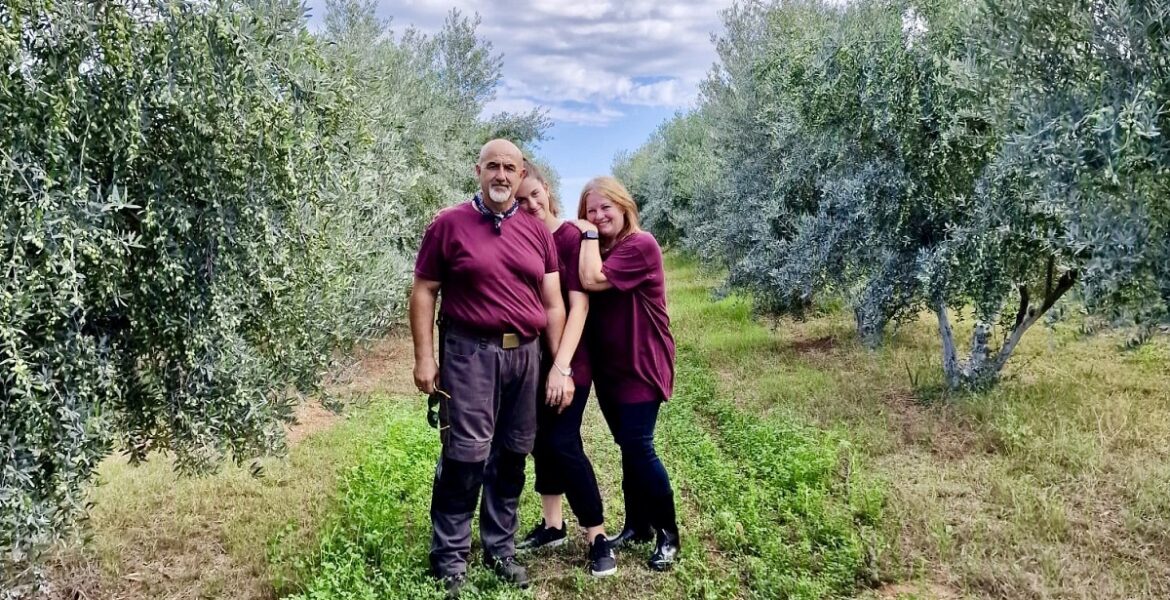7000 olive trees, five different olive varieties and an "Amazona" from Halkidiki in the kitchen of the famous television chef Johann Lafer
In recent years, olives have emerged as ecological heroes, contributing significantly to environmental well-being. Beyond their economic value through the production of table olives and olive oil, these valuable trees are now proven to play a vital role in sequestering carbon and mitigating the effects of climate change while their deep roots fight soil erosion.
Olive trees thrive in arid climates, and olive cultivation promotes water conservation and the different ecosystems it supports around them, and thus contributes to overall biodiversity.
As renewable resources deeply rooted in cultural landscapes, olive trees represent a sustainable and multifaceted solution, highlighting the importance of responsible land management and agricultural practices in the global effort to protect our planet.
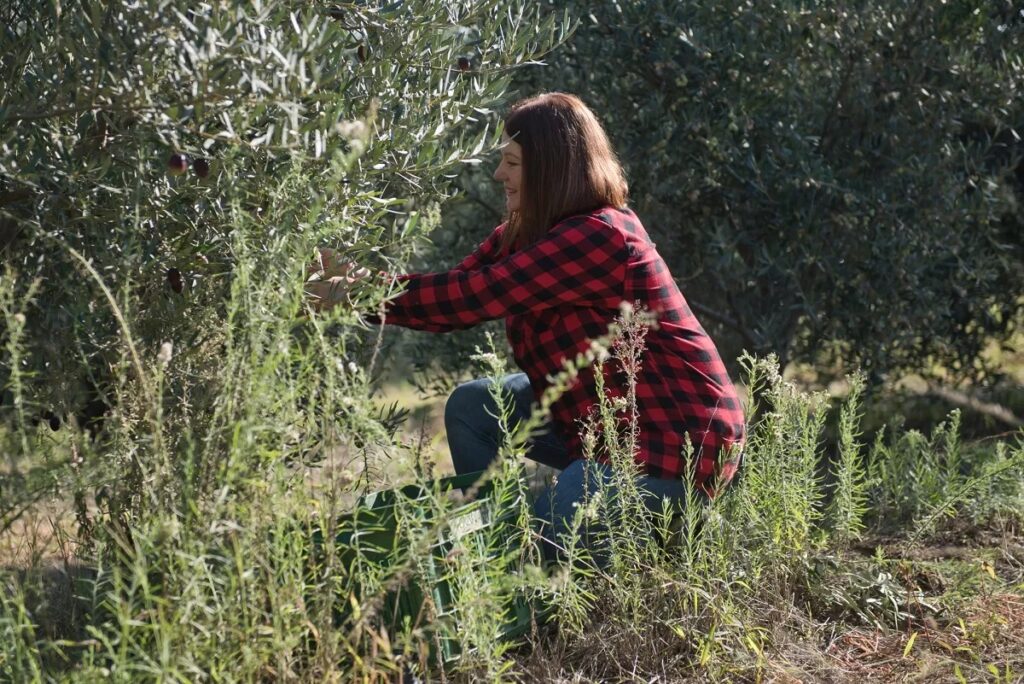
The family of Giorgos Kiosse and Maria Martinakis, who live permanently in Halkidiki, must face these sensitivities and challenges, taking care of an invaluable, productive olive grove so that we live well and they live even better. But what do horses, Amazona's, olives and olive oil have to do with each other?
Let's explore this in order.
Once upon a time, there was a grandfather.
It all started many, many years ago in a small and picturesque coastal settlement, Nea Potidea, in Halkidiki. In this narrow strip of land that joins the Kassandra Peninsula to the rest of Greece with this very special climate, a visionary grandfather had a lifelong dream to produce the best extra virgin olive oil in the world.
Only 200 olive tree roots were taken care of by the grandfather himself, some of them more than a century old, and they probably arrived in the area together with the persecuted refugees from Eastern Thrace and Asia Minor.
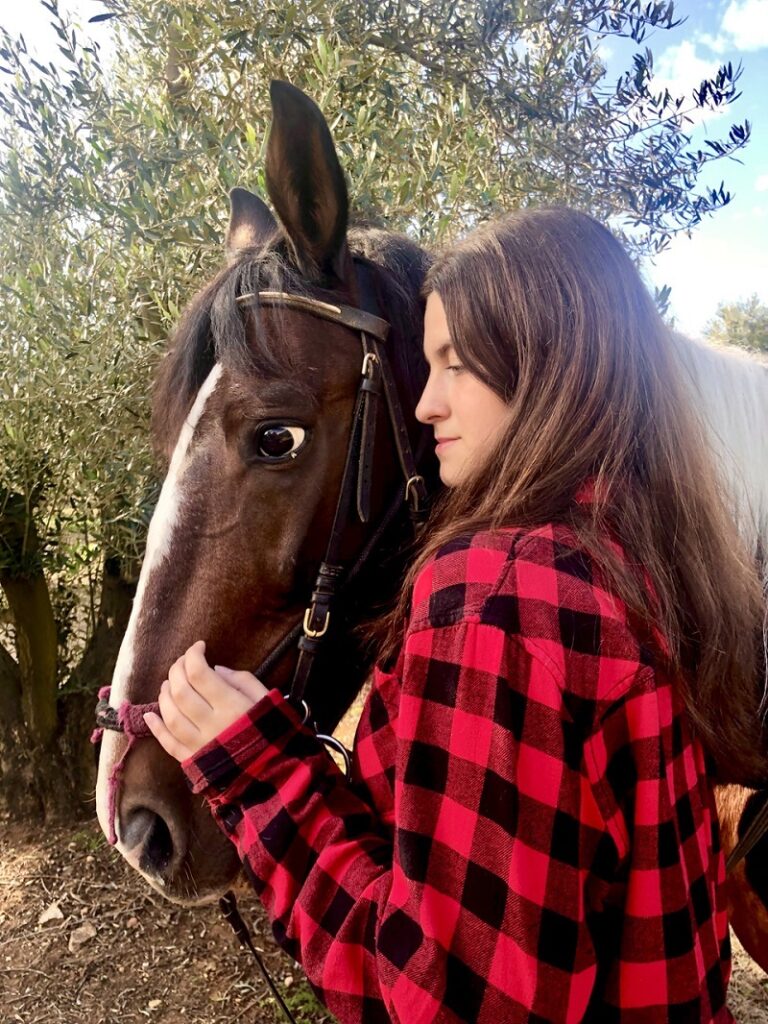
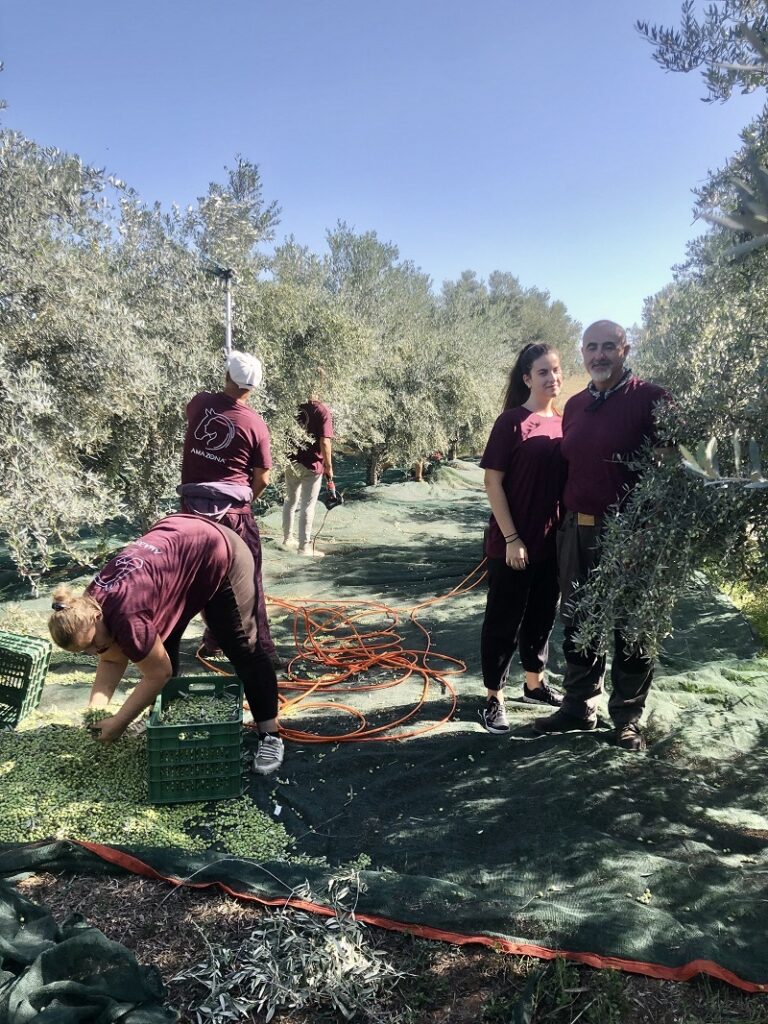
The son, Giorgos Kiosses, a native of Halkidiki, after travelling to different parts of the world, resigned from the security of the public sector where he worked as an employee of PPC and together with his wife Maria Martinaki, decided to return to their land and dedicate themselves to exclusively to it.
Maria, raised in the city of Lügde, Westphalia, Germany, in her youth was a champion horse rider, loved family, bonding, and nature and believed "heart and soul" in the power of the Greek land, an attitude to life that also inspired Giorgos.
When their daughter Styliana was born, they knew exactly what they wanted: they would make their grandfather's vision come true.
Today, Giorgos deals exclusively with the land and the olive trees, applying the best practices of organic farming to bring out the superior quality characteristics of the fruits.
Maria, with special business skills, is the one who constantly promotes their high value and excellent analysis product all over the world and Styliana, now a teenager, as a modern "Amazona" enjoys her horse rides among the sounds and the colours of the olive tree.
The daughter's interest in horse riding and galloping in the olive groves also inspired the brand name, which now makes its first placements abroad as "Amazona".
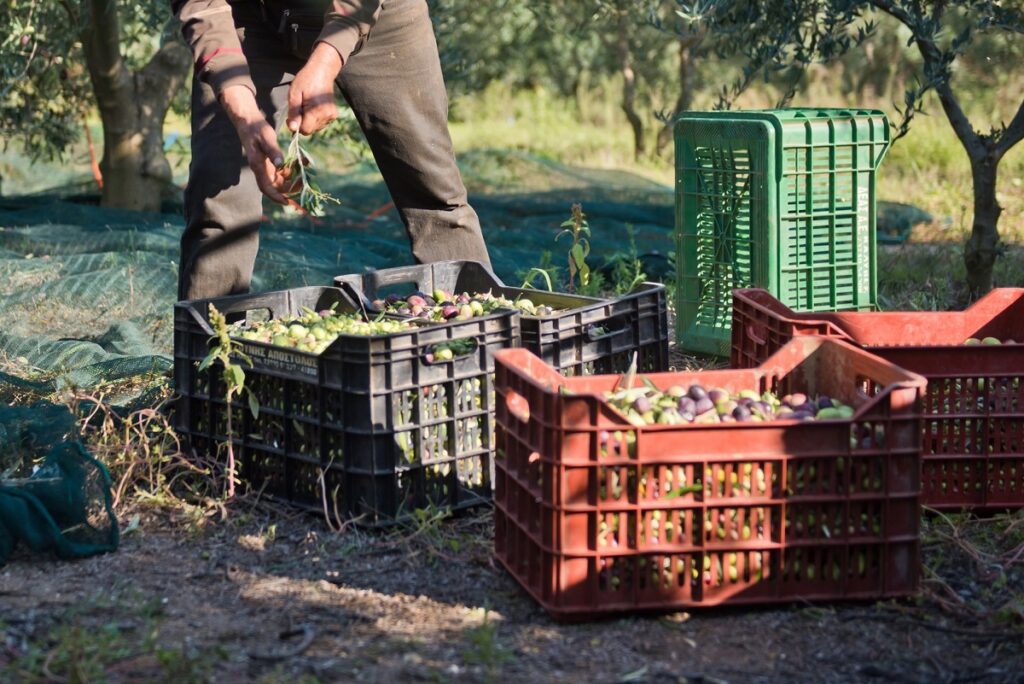
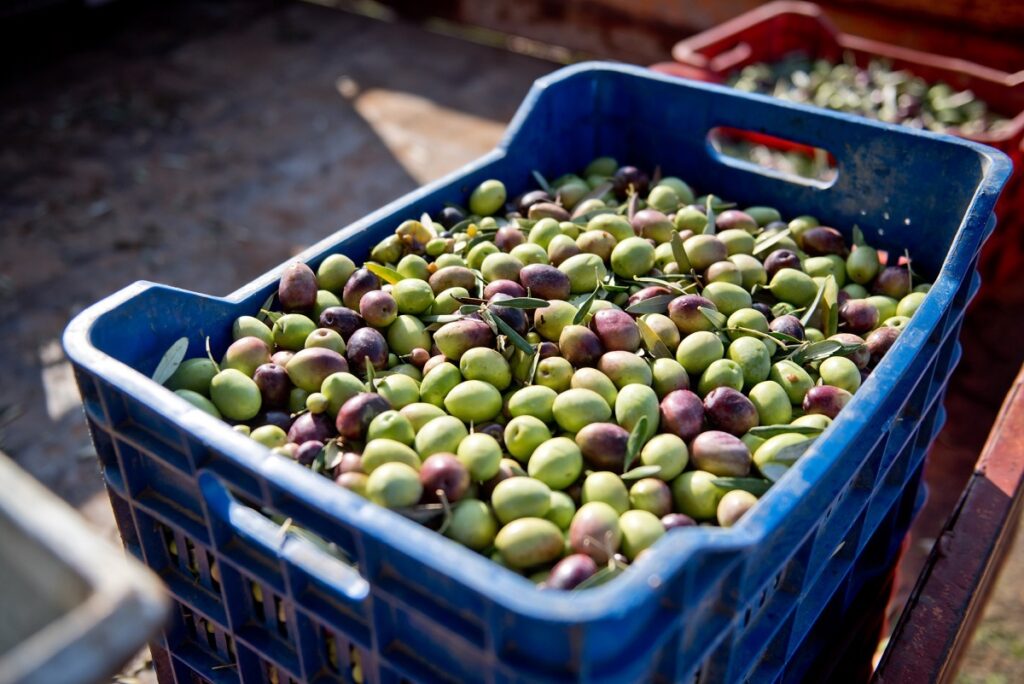
7,000 olive trees and five different varieties of organic olives
The grandfather bequeathed to his son Giorgos 90 acres of land, which had only 200 olive trees. After studying, asking and reading, he cultivated around 7,000 olive trees with five different varieties today.
Megaritiki, Kalamon, Koroneiki, and Arbekina are used for making oil, and Chondrolia of Halkidiki is used for table use. All good practices are followed to the letter for the organic cultivation of the olive grove, with certified organic fertilisers not only for the family's olive groves but also for the surrounding area.
Giorgos, to protect the olive trees and achieve the best possible result in the final product, in addition to the biological fertilisation of his lands, he also fertilises the conventionally grown olive trees bordering within a radius of up to 50 metres.
The deadly hurricane that hit Halkidiki in 2019 destroyed 1,600 olive trees.
Climate change and extreme weather events are causing irreparable damage to growers. In July 2019, the "killer typhoon" of Halkidiki, an extreme gale that reached 12 Beaufort, passed through their olive grove and destroyed 1,600 olive trees loaded with fruit that would be harvested in two months.
In a few minutes, the efforts and expenses of many years were destroyed, but this did not stand in the way of their dreams. The olive trees were uprooted or sick, so they were replaced with new trees, and everything started again from the beginning.
This year, although the olive growing season recorded the worst numbers with a highly reduced quantity throughout Greece, luck was on their side, and nature finally decided to reward them.
From the beginning of the olive harvest, at the end of September, until the end of October, when the oil extraction was completed, everything went incredibly well.
It was a good year and a development that allowed them to rejoice and enjoy the labours of 12 years.
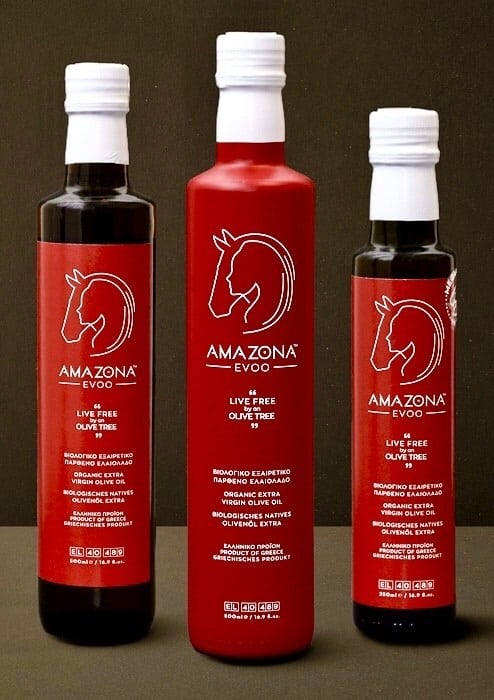
Amazona with organic certifications and health claims
For product exports, certifications of organic cultivation, oiling and standardisation are very important, and with them, they can approach foreign markets, especially countries such as Germany and Austria.
The extra virgin olive oil "Amazona" of the Styliana company is analysed every year. It is certified to contain an extremely high biophenol content according to the official COI/ T.20/Doc. No 29. The International Olive Council recognises the HPLC method.
Also, according to European Regulation 432/2012 (L 136 / 25.5.2012 p. 26), only extra virgin olive oils that contain at least 250mg of polyphenols per 1 Kg of olive oil, a limit which the products far exceed their.
"Amazona" in the hands of chef Johan Laffer
The first analyses showed extremely high percentages of phenols, and the first organoleptic evaluations note "as fruity as possible", Maria tells us enthusiastically. Their joy grew this year when a sample of this year's harvest arrived in the kitchen of the famous television chef Johann Lafer. It was an occasion to order a palette for his cooking.
And while the samplings are ongoing, a large placement in one of Northern Germany's most known delicatessen hotspots is already underway.
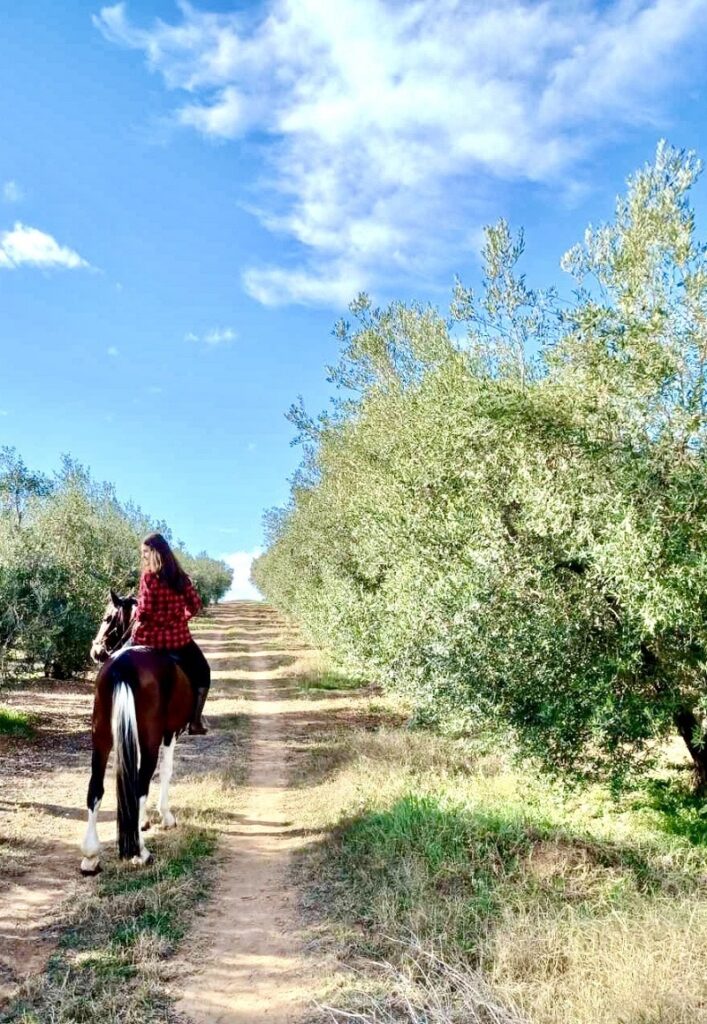
What can we expect in the future?
Nature is an unstable factor for farmers, so they cannot confidently predict the future. In 2019, a significant part of the olive grove was destroyed, and in 2023, although it was a bad olive growing year for everyone, luck was on their side.
But this does not mean that they can be reassured.
"We will continue to take care of the olive trees with the most modern practices that respect the environment and the people around us. Our desire is, at some point in the future, to create a fully organised visitable farm where we can share the boundless love we have not only for horses but also for dogs and other animals," said Maria.
Info: Extra Virgin Olive Oil "Amazona", Nea Potidaia, Halkidiki, tel. 6984 613178 www.styliana.gr
Yanna Balafouti is a columnist for Olive Magazine.
READ MORE: Exploring one of Athens’ Tastiest Neighbourhoods.

